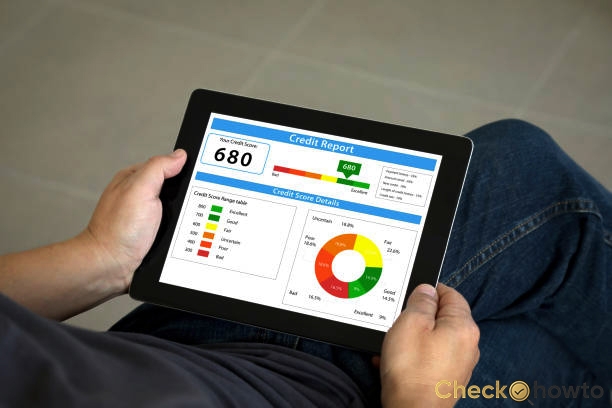You must know how to check your credit score because scores are not static; they change with time, and this can also affect your credit. Your credit score gives you insight into what you are doing well and offers guidelines on how you can improve your credit.

However, your credit score is integral to your financial life, so you must check it regularly. A credit score is a three-digit number that ranges from 300 to 850.
It represents your creditworthiness and shows the level of risk associated with giving credit or a loan to a borrower or a customer.
If your credit score is low, it poses a higher risk and shows that the customer may default in paying back the loan.
However, a high credit score shows the lender that you will be able to pay back your loan.
Credit scores can be ranked as excellent (720 and above), good (690 – 719), fair (630 – 689), and bad (300 – 629).
Lenders use the rank of your credit score to assess risks ranging from customer prequalification to market expansion and credit evaluation.
Your credit score plays a big role in your financial life. Its state also determines whether you will be able to receive loans.
You should check your credit score regularly, and if you do not know how to do so, read below to learn how.
How to Check Your Credit Score
There are different ways to check your credit score. Below are some ways to check.
- Visit a nonprofit credit counsellor.
- Check it with your card issuer or lender.
- Check it on a free credit scoring website.
1. Visit A Nonprofit Credit Counselor
You can visit a nonprofit credit counsellor to check your credit score. These credit counsellors help pull your score for free, and they assist in going over the details with you.
2. Check It with Your Card Issuer or Lender
Checking your credit score with your credit issuer or lender is possible. Most credit card companies have complimentary credit scores that you can check by either logging into your account online or receiving your monthly statement.
3. Check It On a Free Credit Scoring Website
To check your score, you can visit a free credit scoring website. Diverse websites allow you to check your score without paying.
However, you must check the terms and ensure you agree to them before signing up. Some of these websites also offer educational scores that can help you understand your credit score.
Why You Need to Check Your Credit Score
You must know your credit score, so it needs to be checked constantly. Credit scores are not static; they change, so you will not know your credit score if you do not check them consistently.
Your credit score is regularly updated. It goes up and down every month, and it may change frequently, depending on who is reporting it.
Knowing your credit score makes you more likely to make good decisions about your finances. For instance, if you check your credit score and find out you have a high score, it will make you look like an attractive and confident applicant to creditors.
But when you check and find out you have a low score, you will become more cautious about applying for a loan as there is a big chance you will get rejected. So, knowing your credit score will inform you of your stance.
What to do After Checking Your Credit Score
After checking your credit score, it does not end there. The result will determine whether you should improve it or ensure it does not go down.
If you check your credit score and it is high, you must ensure that it does not go down. But if your credit score is low, you have to improve it. To improve your credit score, follow the steps below.
- First, check your credit score to know why it is low.
- Then, pay up your credit to lower your credit utilization percentage.
- You need to avoid making different credit applications in a short time.
- To improve your credit, you should ask for higher credit limits.
- Keep your accounts open if you do not have a good reason to close them.
- Pay all your bills on time to improve your credit.
By following the steps above, you can improve your credit score.
Related Post;



